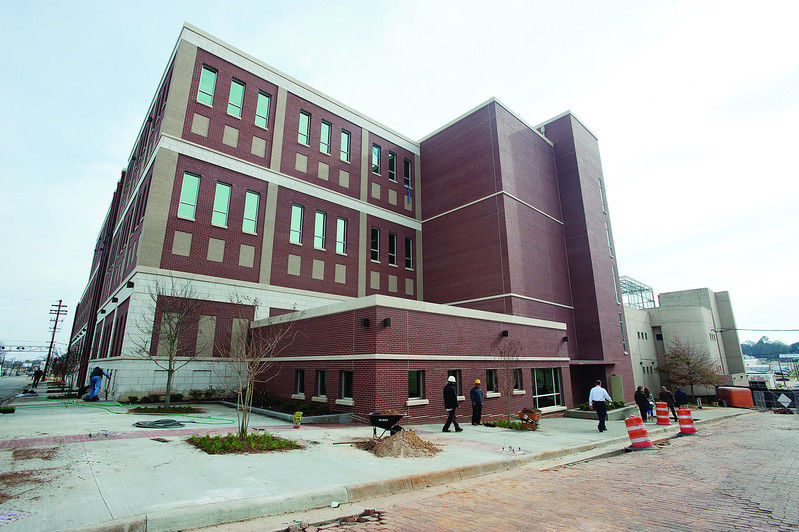Smith County applies for grant to help create a Mental Health Court
Published 6:37 pm Monday, May 15, 2017
People with mental illnesses are eight times more likely to be incarcerated, and they are expensive on the system.
They also are incarcerated three to six times longer than a non-mentally ill person, according to Kathy Wakefield, the Andrews Center division director for forensic services, who recently addressed the Smith County Commissioners Court.
Psychiatric drugs are costly, and mentally ill people are more likely to be violent in the jail. That could be from a variety of reasons including paranoia or fear, she said.
Ms. Wakefield said from April 2016 to 2017, the Andrews Center’s jail diversion program had 2,447 referrals of people who were flagged at book-in as having some sort of mental illness. That’s eight a day, she said.
“That’s a lot of people who are re-offending, clogging up the courts, taking up beds in the jail and clogging up the emergency rooms – it has an effect,” Ms. Wakefield said.
Smith County applied for a state grant that would be a step toward creating a misdemeanor mental health court. The court would be specialized and aimed at lowering the re-arrest rate of people with mental illnesses.
“People who suffer from disorders of thinking, schizophrenia and bipolar, typically get worse when confined,” Ms. Wakefield said. “This can lead to administration segregation (isolation tanks, for example). The isolation further exacerbates paranoid thinking, and should a mentally unstable person be released back into the community, it usually results in homelessness.”
Doug McSwane, with the Potter Minton Law Firm, told commissioners mental health courts have been successful
“In the jail is what I call ‘frequent fliers,’ because of their mental illness, they do something minor, like shoplifting,” McSwane said. “Law enforcement is swamped by these calls. The jail is a one-stop shop. The largest psychiatric facility we’ve got is our jail.”
The Texas Indigent Defense Commission awards grants of $50,000 and up to help counties pay for defense attorneys for the mentally ill who have been arrested on misdemeanor charges.
If Smith County wins a grant, it will be responsible for a 20 percent match.
Judge Jason Ellis in the County Court at Law No. 2 has agreed to preside over the program.
The hope is to get the new court up and running in 2018, and County Judge Nathaniel Moran said he plans to budget funds for its creation in the upcoming budget.
“If we are going to be successful and say we are serious about mental health in Smith County, and make a difference in the community, then we need to put our money where our mouth is,” Moran said.
The court would entail 12-month long program, and be capped at 25 participants annually.
It would be tailored to each person’s individual needs. Each would have different goals. Examples include consistently taking medicine, getting the right dosage of meds as well as acquiring a job or a safe place to live or even a getting a valid ID.
There are resources for mentally ill people in Smith County, but the creation of the court would join those efforts together – essentially putting all participating entities on the same page of the same plan.
“You have a dedicated team to determine a plan for this person and meet together to determine (that),” Moran said. “That’s how you see success. When we come together to make sure it happens, we keep each other accountable.”
Commissioner Jeff Warr said there could also be a black robe effect on the program participants.
“We know we won’t save everyone – 25 a year would be a fabulous success,” Warr said. “Sometimes people won’t listen to their mother, or brother, or counselor but for some reason they will listen to a judge.”
There is moral and financial incentive for the court’s creation.
On one hand, the county is statutorily charged with handling indigent health care and legal defense.
On the other, there are potential financial savings from keeping repeat offenders out of the jail system.
“There’s no way of getting around the money in this, but I think it would be a travesty if we turned a blind eye on this,” Moran said.
Twitter: @TMTFaith







